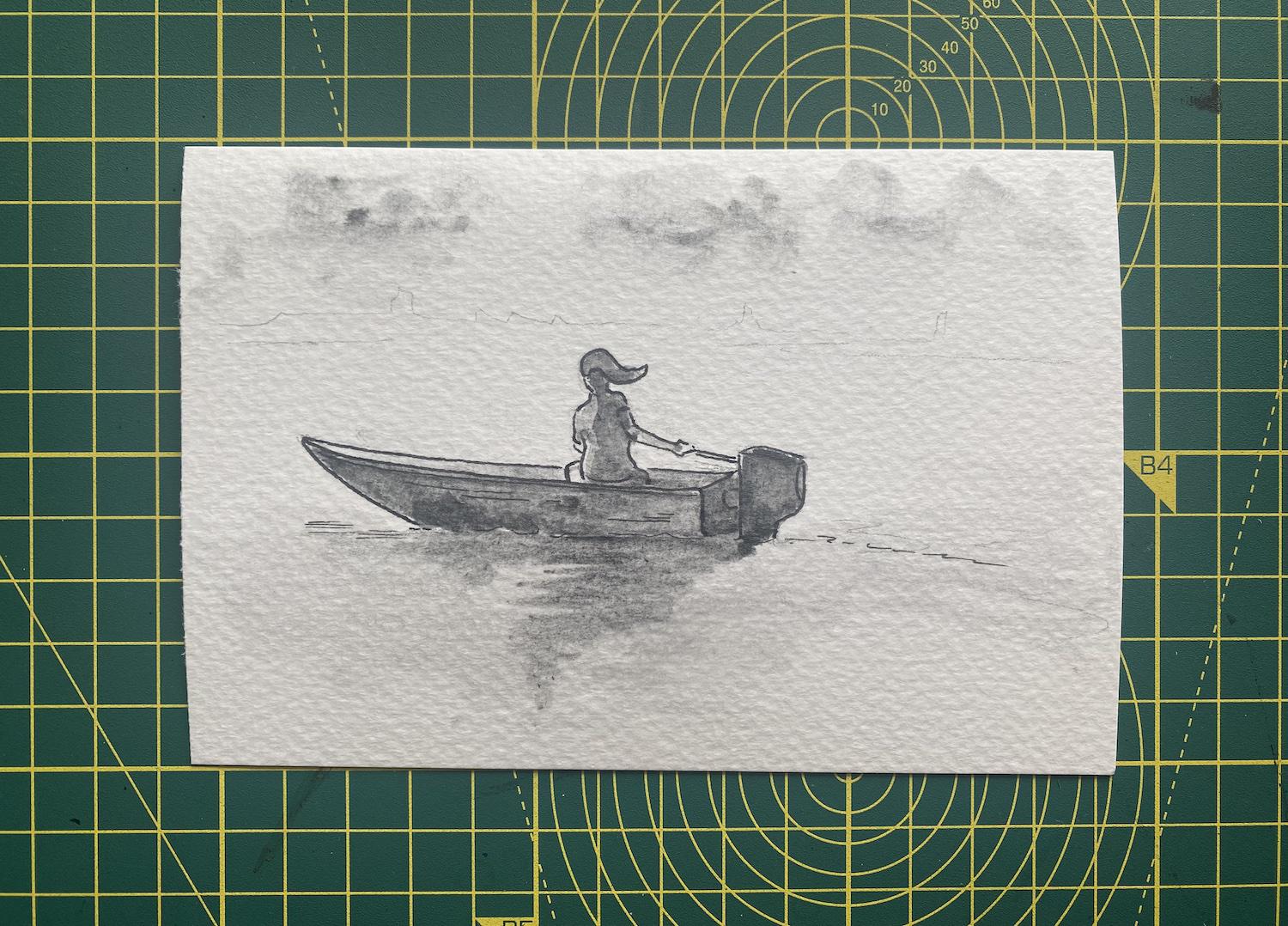
Waiting for a beginning
About a year ago, I watched a great documentary about Hayao Miyazaki’s creative process and was stunned to discover he didn’t start his stories at the beginning. Instead, he began with an image and worked his way out (#096).
Freed from finding a start for my stories, I immediately began drawing out moments and scenes that had been rattling around my brain for years, waiting for a beginning.
At first, I timidly drew the whole scene onto a single A5 page, eventually daring to take up two pages.
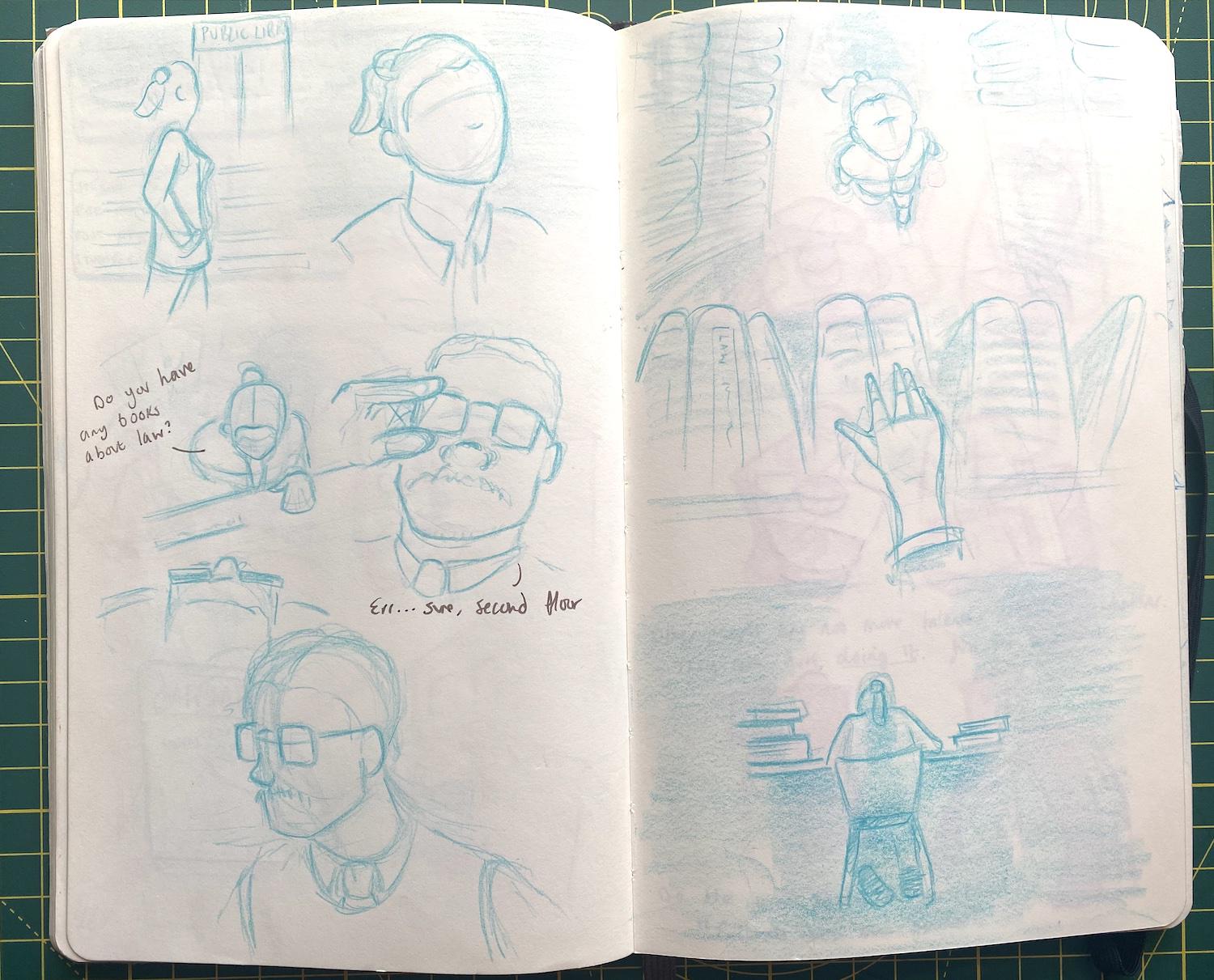
A very short story I sketched out in February 2021
As I drew, the stories grew — in size and ambition.
By the end of the year, I had written and drawn more than a dozen of them, some stretching over 40 pages!
This was not an outcome I had expected at the beginning of the year.
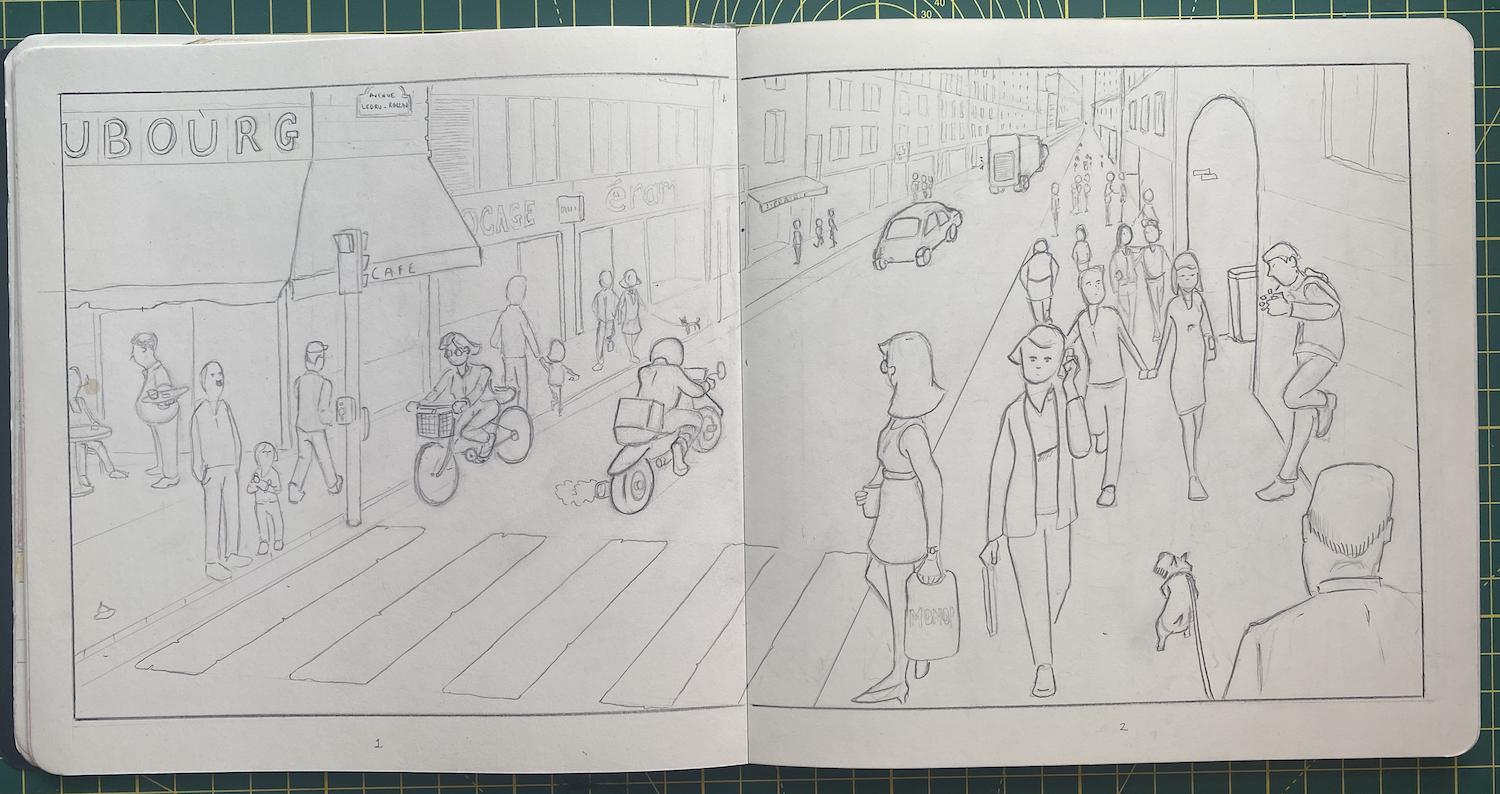
The opening panel from a short story I wrote last summer.
The creative benefits of short stories
Drawing fictional stories for a couple of hours in the early morning, I feel more connected with my creativity than I have felt in years; it’s opened a tap of ideas and stories, and given me an excuse to experiment with different materials.
But more than that:
It reconfirmed my belief that you learn by finishing. It’s only when you complete a story that it can teach you useful lessons about the craft. Whatever you’re learning, create things that let you finish — fast and often.
Short stories are wonderfully low commitment - let that free you from high expectations! Neil Gaiman describes writing a short story as “taking the boat out for the day”:
“You can have an idea, you can take it out and see what happens and learn something.”
I once drew a short story that was entirely in close-ups of eyes…except, I soon learned, I can’t draw eyes! It was a mess, but I had only lost a few mornings on it and I could quickly move onto the next idea.
Bitesize stories are easier to experiment with. I just started drawing a new story this week. It’s only two-pages long and feels very manageable: the small size allows me to try different iterations fast. Is the story better with 9 panels on each page, or just 4? In minutes, I can draw both out and see for myself. It somehow feels easier to slow down with a short story and really examine its parts.
Short stories create a trail. First, you will build a momentum in your work. You’ll feel more productive and get those satisfying dopamine hits more frequently. But even more than that, you’ll create a trail of completed works that begin to tell you who you are.
Writing and finishing short stories for just a year has revealed to me themes of invisibility, anger and sexuality and a powerful image of sinking into dark water that won’t go away.
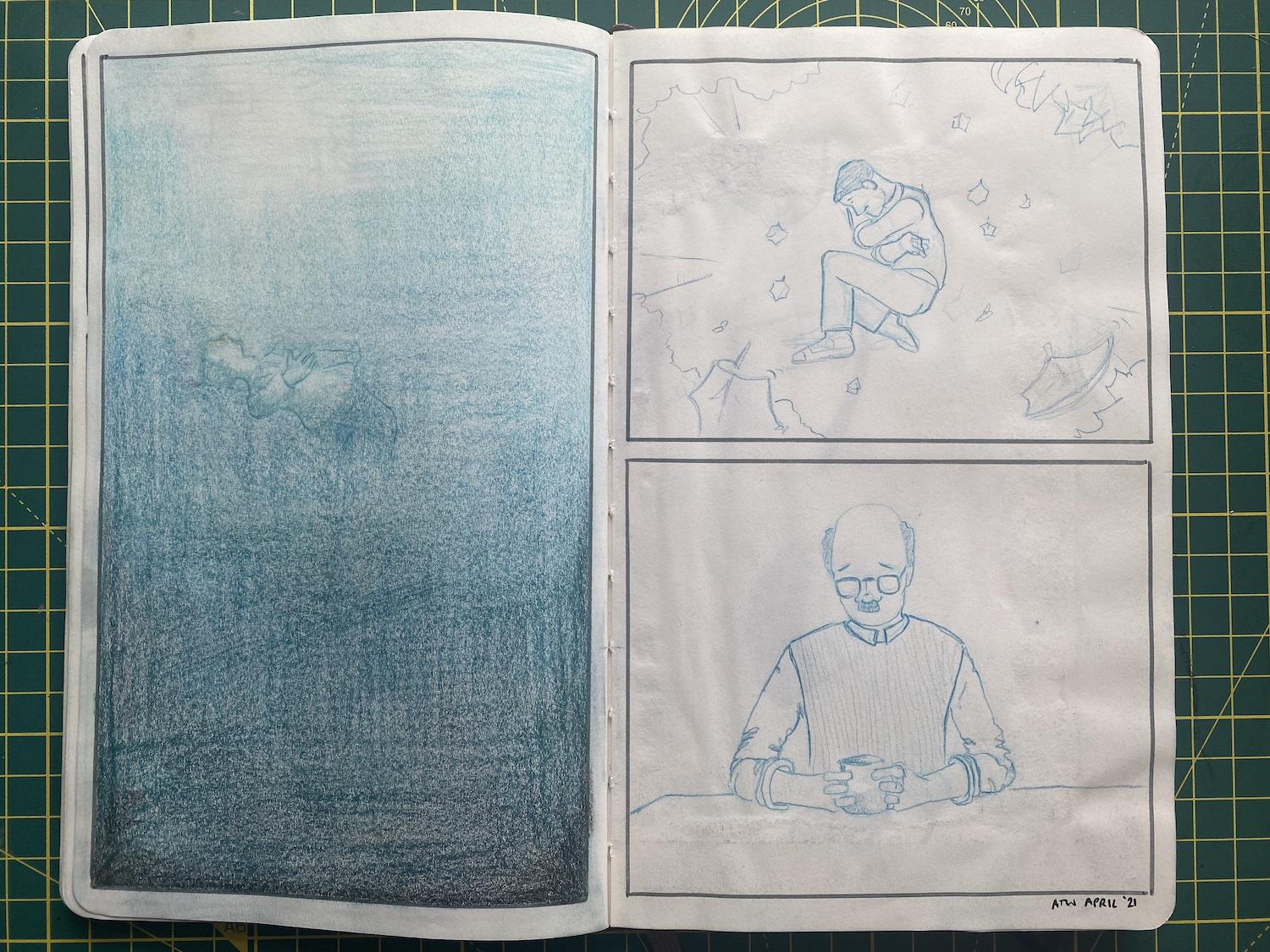
The final two pages from a story I wrote a year ago.
The creative challenge of short story writing
In A Swim In The Pond In The Rain, an analysis of Russian literature that has no place being this fun to read, George Saunders says short stories demand an efficiency that novels do not.
“One of the tacit promises of a short story, because it’s so short, is that there’s no waste in it. Everything in it is there for a reason (for the story to make use of) - even a brief description of a road.”
There’s an efficiency here that I find very appealing. “You are not paid by the word,” says Neil Gaiman, “you are paying by the word.”
Just one thing has to happen in a short story, but it can still be a profound thing.
When he asked another writer for advice on short stories, Gaiman was told “write your short story like it was the last chapter of a novel you didn’t write” — in other words, the most interesting, climactic moment in a novel is the centre of your short story.
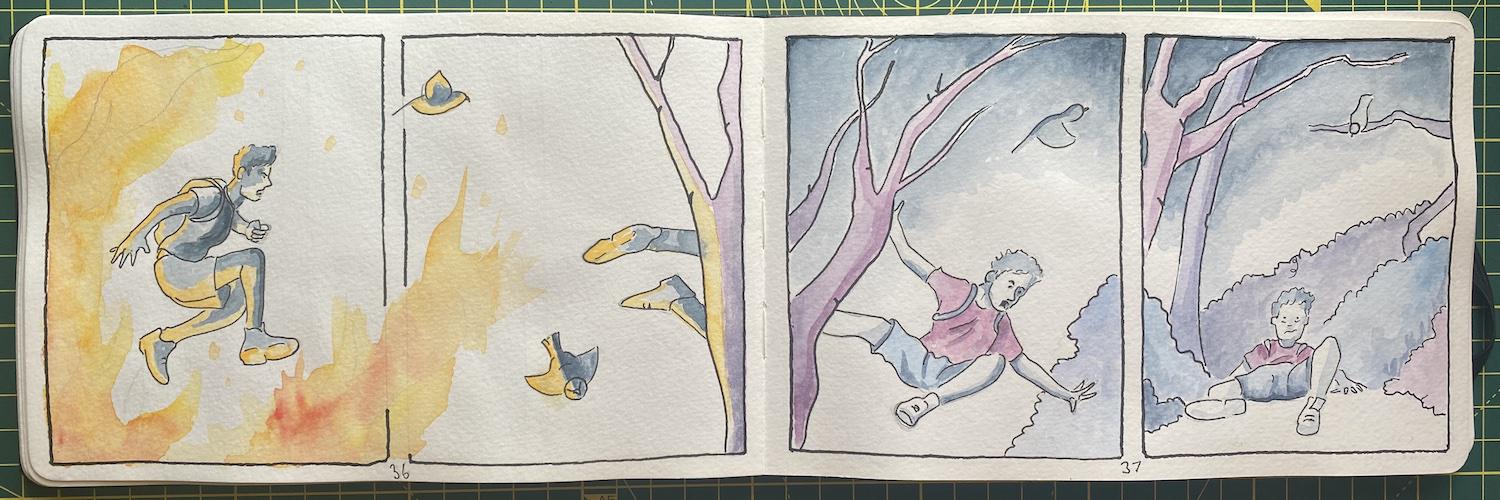
An exciting moment from a story I wrote in September of last year.
What are your favourite short stories?
Given that short stories are so beneficial to creators, it’s a shame that they seem less popular among publishers and audiences. I’d love it if there were a thriving community of short-story readers, outside of The New Yorker, hungry for work from emerging storytellers.
What are your favourite short stories, short story collections or publications? I’d love to expand my library!
🌅
This week’s letter is dedicated to the memory of Hassan Kiyany, a filmmaker and long-time Third Something reader. I only learned this week of his passing last year at the age of just 38. He was an award-winning filmmaker in the United Arab Emirates and passionate about telling great stories. He would often email me to talk about story structure and we would go back and forth for days. My thoughts are with his friends and family.
Until another Sunday soon,
